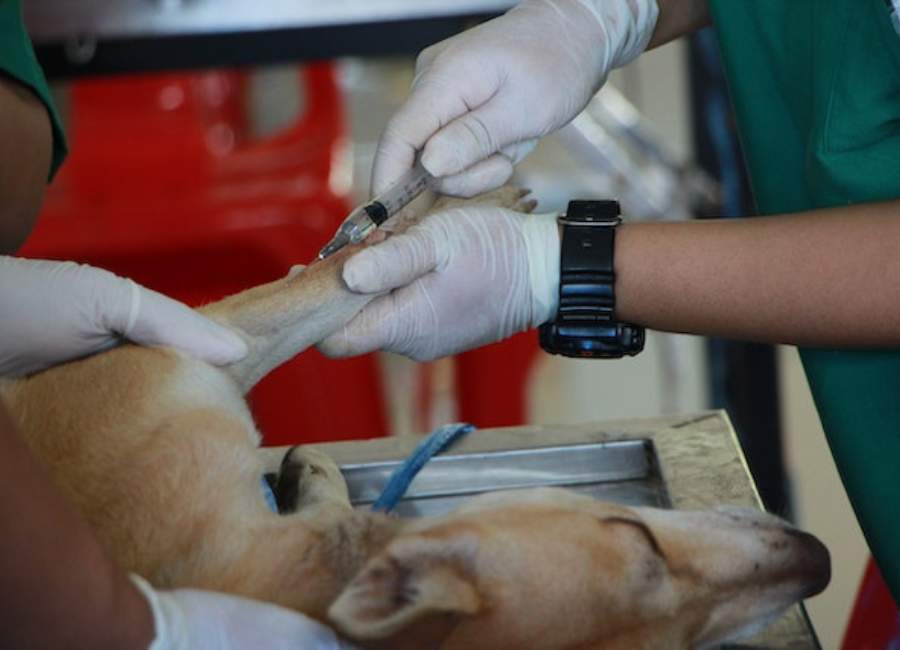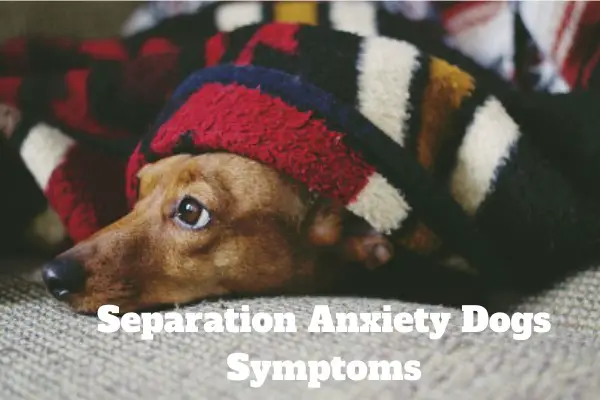10 Benefits Of Vaccinations For Dogs

Let’s discuss the benefits of vaccinations for dogs! Vaccinations are essential for keeping your dog healthy.
They can help protect your dog from potentially fatal infections and perhaps save its life.
Vaccinating your dog has several advantages, and today we’ll look at why you should make sure your pet is up to date on their immunizations.
The benefits of immunizations for dogs are numerous, ranging from disease prevention to increased life expectancy.
So keep reading to find out more about the necessity of vaccinating your dog!
Benefits Of Vaccinations For Dogs
Here are some common reasons why vaccinations are so important for our furry friends:
Peace of mind
Knowing your dog is immune to dangerous illnesses can provide you with peace of mind and let you enjoy your time with your companion even more.
You can feel more at ease and confident in your dog’s health, which can strengthen your bond.
Vaccinating your dog will give you a certain amount of confidence when your dog is playing with other dogs.
Even when you take your dog to meet other dogs or to the dog park, you will be relaxed knowing that your pup took vaccination shots.
Reduced risk of disease transmission
When a dog gets vaccinated, it is less likely to become infected with the diseases against which it has been immunized.
Which means it is less likely to transfer those diseases to other dogs in the neighborhood.
This is especially critical for infections that spread easily, such as parvovirus.
The chances of disease transmission in dogs are lowered by keeping your dog’s vaccinations up-to-date
Lower veterinary bills
Vaccinations are a cost-effective strategy to prevent your dog from deadly diseases since they are frequently far less expensive than the expense of treating an illness after it has started.
You may prevent expensive veterinarian fees and keep your dog healthy by keeping up with their immunizations.
It’s simple if you don’t vaccinate dogs early when they eventually get sick you will spend double the amount you would have used for vaccinations in treating them.
Protection from serious diseases
Vaccinations are critical for preventing dogs from potentially fatal infections such as distemper, parvovirus, and rabies.
These infections may cause serious symptoms including vomiting, diarrhea, seizures, and even death, so it’s critical to have your dog vaccinated to avoid infection.
Through vaccinations, you can prevent illnesses that can be threatening to the life of your dog as early as possible.
Protection against zoonotic illnesses
Some canine diseases, such as leptospirosis and Lyme disease, can be transferred to people.
You may help protect yourself and your family from infection by vaccinating your dog against certain diseases.
This Zoonotic illness that can be transferred to humans can be avoided by vaccinating your dog thereby saving you the stress and time of getting sick.
Compliance with local regulations
Many towns and states need dogs to be vaccinated against specific diseases, such as rabies.
You may prevent legal hassles and fines by keeping your dog’s vaccines up to date.
Some states mandate vaccinating your dog, and if you do so you will become a law-abiding citizen which makes the work of the government easy.
Improved quality of life
Vaccinations can help enhance your dog’s overall quality of life by keeping them healthy and safe from illnesses.
A happy dog is a healthy dog, which means it may live their lives to the fullest with fewer interruptions due to disease.
Longer lifespan for your dog
Vaccinations can help dogs live longer, healthier lives by keeping them from dangerous illnesses that would otherwise cause them to die prematurely.
This means spending more time with your cherished pet and having fewer health concerns.
Do you really want your pup to live longer, healthier and happier, then consider dog vaccinations as a good option.
Helping to eradicate certain diseases
Vaccinating your dog can help to eliminate some illnesses from canine populations in a modest but significant way.
Canine distemper, for example, has been eliminated in several regions of the world because of massive immunization efforts.
By vaccinating your dog, you are helping to achieve the greater objective of disease elimination, which benefits all dogs and the community as a whole.
Protects against new strains and control outbreaks
As viruses mutate, new strains of diseases can emerge.
Vaccinations are developed to protect against these new strains, keeping your dog safe from the latest threats.
Vaccinations can be used to help control outbreaks of infectious diseases in communities, reducing the likelihood of a widespread epidemic.
Learn more about the benefits of regular medical check-ups for dogs.
The average price of vaccinations for dogs
The typical cost of dog vaccines varies based on region, vaccine type, and veterinary costs.
In general, the cost of a basic set of vaccines for a dog can range from $30 to $250, and the annual boosters can cost around $30 to $60.
Rabies, distemper, parvovirus, adenovirus, and leptospirosis are among the most popular immunizations for dogs.
Some veterinarians may advise extra immunizations based on the dog’s lifestyle and risk of illness exposure.
It’s important to note that vaccines are only one component of the entire cost of dog ownership; pet owners should also pay for monthly check-ups, preventative care, and unforeseen medical bills.
Frequently Asked Questions
What exactly are dog vaccinations?
Vaccinations for dogs are injections of small quantities of modified or inactivated viruses, bacteria, or other pathogens that stimulate the immune system of the dog, causing it to create antibodies.
These antibodies help keep the dog from contracting the ailment in the future.
Which immunizations are required for dogs?
The core vaccinations for dogs protect against illnesses that are extremely infectious and possibly lethal, such as distemper, parvovirus, adenovirus, and rabies.
Non-core vaccinations, such as those for Bordetella, Leptospirosis, and Lyme disease, may also be advised based on the lifestyle and risk factors of the dog.
Are there any dangers involved with dog vaccinations?
Vaccinations for dogs are typically safe, although there is a tiny chance of adverse effects such as injection site discomfort, drowsiness, and fever.
Severe responses, such as anaphylaxis, are uncommon.
Discuss any concerns you have about your dog’s vaccines with your veterinarian.
How frequently do dogs require vaccinations?
The frequency of immunizations for dogs varies according to the vaccine and the unique needs of the dog.
Most basic vaccinations are administered in a series of doses to puppies, followed by boosters at regular intervals throughout their lives.
Non-core vaccinations may need to be administered once a year or every three years.
Can dogs become ill despite being vaccinated?
Vaccinations for dogs are not 100% successful, but they considerably lower the likelihood of a dog becoming ill from the disease against which they have been immunized.
A vaccinated dog may still become ill in certain situations, but their symptoms will be less severe and its recovery period may be shorter than that of an unvaccinated dog.
What if I do not vaccinate my dog?
If you do not vaccinate your dog, they are more likely to contract serious and potentially deadly infections.
They may also transmit illnesses to other animals and even people, resulting in epidemics and public health issues.
Can senior dogs be vaccinated?
Yes, and older dogs should be vaccinated.
While it is critical to adhere to the first immunization schedule when a dog is a puppy, vaccines throughout their lives help guarantee that they remain disease-free.
Is it necessary to vaccinate your dog legally?
Yes, canine vaccines are required by law, notably the rabies vaccine.
Rabies is a zoonotic illness that may be spread from dogs to humans, and most states in the United States require rabies vaccinations for dogs.
Other countries may have their own dog vaccination laws.
Conclusion
Finally, having your pet vaccinated is one of the finest things you can do for their health and well-being.
It not only protects them against potentially fatal diseases, but it also aids in the prevention of such diseases spreading to other animals and even people.
Dog vaccinations are safe, effective, and inexpensive, making them a no-brainer for any conscientious pet owner.
Vaccinating your dog not only shows your love and care for your pet but also contributes to a better and safer neighborhood for everyone.
So don’t put off seeing your doctor and getting your puppy up to date on their vaccines!






